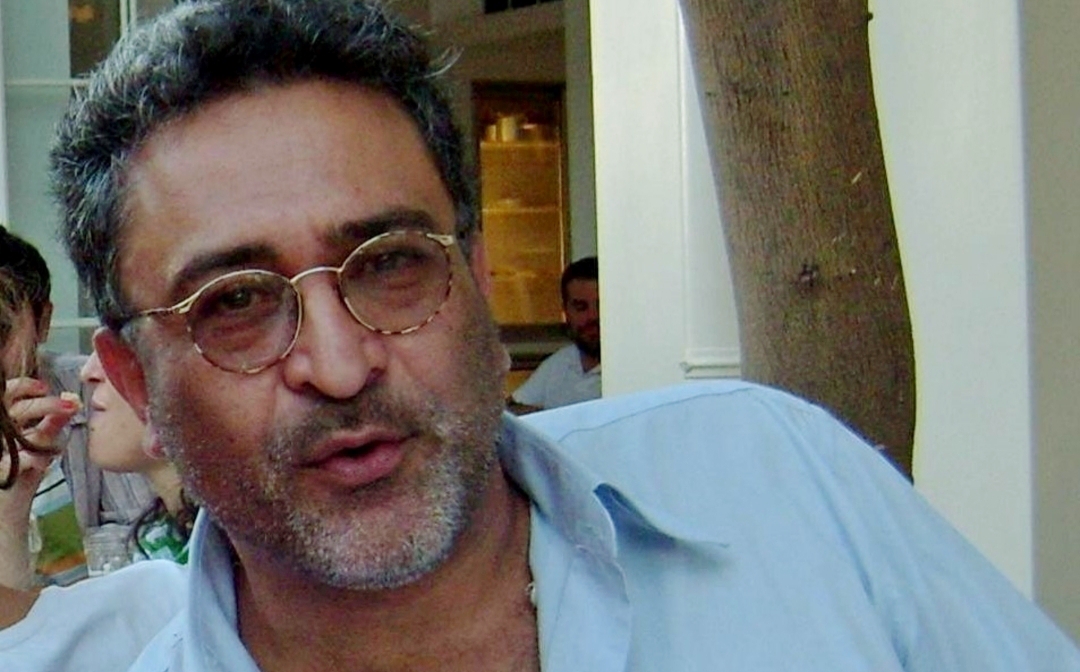Επιμέλεια: Εύα Πετροπούλου Λιανού
Map
After a salon at the end of the alley closed down its business,
It’s now a biscuit shop,
And there’s conflict over it,
Yet, no one paid attention here for so long.
Two packs of dogs are engaged in a border war.
On the electric pole next to the shop,
A dog leader urinates,
And that’s the boundary of his pack.
The leader of the other pack also
Urinates on the shop’s wall.
Sometimes, when the shop is closed,
A urination competition takes place on the shutter.
A dog’s map is very small,
Even a tiny alley in the neighborhood
Sometimes gets divided.
They create boundaries by urinating,
They expand their territory.
Free dogs become prisoners
In their urine maps.
Then the war continues all day,
The tradition, culture, and demands of urine.
One pack tears the flesh of another.
The neighborhood gets infected by dog wounds,
Jaundice, asthma, and sometimes cholera occur.
The biscuit shop enjoys a brisk business,
Perhaps the taste of tea also increases with the smell of dog urine…
© Ri Hossain
Netanyahu’s Flute
Netanyahu has a flute,
Whose magical tune enchants,
Trump, Modi, Putin, Sisi,
Even Bin Salman is captivated.
Perhaps the flute was inherited from Nero, the Roman Emperor.
To the flute’s melody, like the children of Hamelin,
Millions of bombs rain down on Gaza.
Palestine burns like ancient Rome,
The world revels in a festival of tears and lamentations.
A storm of condemnation, and farcical protests,
Netanyahu’s flute continues to play its tune.
For the United Nations, the flute becomes a charmer’s been,
And Netanyahu, playing that flute,
Makes the United Nations dance like a snake…
©RI Hoossain
A Game of Sharp Condemnation (To United Nations)
I’m dying…
And you are condemning,
Sharp condemnation…
From sharp to sharper…
And I, dying and dying,
By bullets, crushed under boots,
With the number of deaths,
The intensity of your condemnation increases.
Inspired by your anxiety and concern,
The number of deaths,
Increases more and more,
And the intensity of your condemnation also increases.
This is a game,
Of condemnation and death,
But in this game,
You will be the loser.
One day, dying one by one, we will all perish,
Then there will be no one left for death.
The intensity of your condemnation will no longer increase.
©Ri Hossain
Biography of Ri Hossain
Ri Hossain is a prominent and passionate voice in Bengali poetry, recognized as a rebellious and resilient figure in the literary landscape. His poetry reflects personal experiences, societal conflicts, and deep social injustices, making him a significant commentator on contemporary issues.
**Early Life and Writing Beginnings**
Born on August 19, in 1981 (though some debate exists regarding the exact year), in New Senpur, Rangpur District, Ri Hossain grew up in a complex social environment marked by injustice and inequality. His father’s ancestral home is in the village of Mosadgaon, Louhajong, Munshiganj. These early experiences of oppression and marginalization profoundly influenced his poetic voice.
Hossain began his literary journey in 1993 with the publication of his first poem, “Ei Borshay,” in a local newspaper called *Juger Alo*. Over the years, he established himself within the literary community, addressing themes of social inequality, the suffering of the oppressed, and the tyranny of authoritarian regimes.
**Protest and Rebellion in Poetry**
Ri Hossain’s poetry serves as a potent form of resistance. His work, particularly during the protests against quotas and inequality in July-August 2024, resonated deeply with the movements of the time. His poetry collection, *Kobitar Abhyutthan Chai* (I Demand a Uprising of Poetry), played a crucial role in the activism of 2024, especially the poem “Bidrohe” (In Rebellion), which inspired many and highlighted the plight of martyr Abu Sayeed.
He actively participated in these movements, often preparing for protests with meticulous care, sharing important information with his wife in case of his demise. His poems, such as “Amake Shoke Dhoreche” (Grief Has Taken Hold of Me), “Bivartan” (Evolution), and “Jhapata Batasher Gaan” (The Song of the Blustering Wind), capture the themes of grief, struggle, and the desire for change, portraying vivid imagery of both natural and social revolutions.
**Literature and Life Philosophy**
Ri Hossain views his writing as vital as air, intended not just for personal enjoyment but to raise societal awareness. In 2014, due to his rebellious writings, he faced pressure from the National Security Intelligence (NSI) and had to submit a written apology. Despite such challenges, he remained undeterred, continuing to explore deep themes of death, grief, and the essence of life in his essays and poems.
In June 2024, two of his poems, “Kapurusher Ma” (Mother of the Coward) and “Durbritto” (Ruffian), drew threats due to their anti-India sentiments. Nevertheless, he persisted in his literary pursuits, emphasizing that his life, like his writings, is intertwined with political and social contexts.
**Conclusion**
Ri Hossain is a poet of struggle, whose work awakens the human spirit and exposes societal inconsistencies, injustices, and disparities. His life exemplifies a commitment to society and a courageous stance against oppression. Through his poetry, themes of grief, protest, love, and deep social responsibility resonate powerfully, making him an essential voice in contemporary Bengali literature.

































